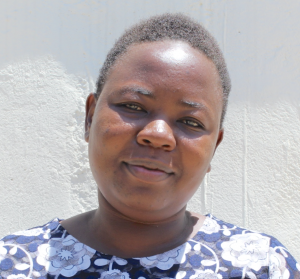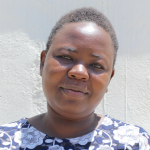Lwanda Secondary School is located in Busalwa Village, Kenya. There are 625 students here who attend classes like math, science, history, geography, and foreign language led by 15 teachers and 3 staff. A normal day begins at 6am when the older students arrive for study hall. There is a thorough cleaning at 7am by the younger students in preparation for morning assembly to raise the flag. The teacher on duty addresses the students and invites other teachers to give their remarks.
There is severe water scarcity at Lwanda Secondary. The administration thought their problems would be solved when a local water service installed a pipe system. Unfortunately, the school has been overwhelmed by the huge bills they are receiving each month. The bills are very high and the water is not even available throughout the week. They have reached out to the water company to learn more about why they're being charged so much, but they have not heard back.
Since the system ended up being unreliable, they placed some plastic tanks by the roofs to collect rainwater. These tanks are too small and go dry quickly. Water scarcity in the school has negatively impacted students' performance, as water from the plastic tanks is strictly rationed. There are students who complain of stomachaches on a daily basis.
"The rate of absenteeism is very high in this school. A number of students have reported cases of waterborne diseases like typhoid and a lot of money spent on medication instead of paying their school fees," shared Teacher John Serete.
This school is in desperate need of a new way to collect and store water that meets their drinking, lunch program, and cleaning needs.
What we can do:
Training
Training will be held for two days. The facilitator will use PHAST (participatory hygiene and sanitation transformation), ABCD (asset-based community development), CTC (child to child), lectures, group discussions, and handouts to teach health topics and ways to promote good practices within the school. The CTC method will prepare students to lead other students into healthy habits, as well as kickstart a CTC club for the school.
Handwashing Stations
This CTC club will oversee the new facilities, such as handwashing stations, and make sure they are kept clean and in working condition. The two handwashing stations will be delivered to the school, and the club will fill them with water on a daily basis and make sure there is always a cleaning agent such as soap or ash.
VIP Latrines
The current latrines are in pathetic condition. They are dirty and full of bad odors, forcing the students to urinate behind the latrines. One of the pipe taps is connected near the latrines, but again the challenge is that the water doesn't always flow. If they had enough water, they'd be able to wash their latrines regularly. There aren't enough latrines, either.
"The situation in our community and especially the school has always been wanting since the sanitation facilities are not enough. Girls waste a lot of time lining up to use the facilities," shared Teacher Lewis Musonye.
Two triple-door latrines will be constructed with local materials that the school will help gather. Three doors will serve the girls while the other three serve the boys. And with a new source of water on school grounds, students and staff should have enough to keep these new latrines clean.
Rainwater Catchment Tank
A 50,000-liter rainwater catchment tank will help alleviate the water crisis at this school. The school will also help gather the needed materials such as sand, rocks, and water for mixing cement. Once finished, this tank can begin catching rainfall that will be used by the school’s students and staff.
We and the school strongly believe that with this assistance, standards will significantly improve. These higher standards will translate to better health which will unlock the potential for higher academic achievement.

 Rainwater Catchment
Rainwater Catchment
 Rehabilitation Project
Rehabilitation Project






































